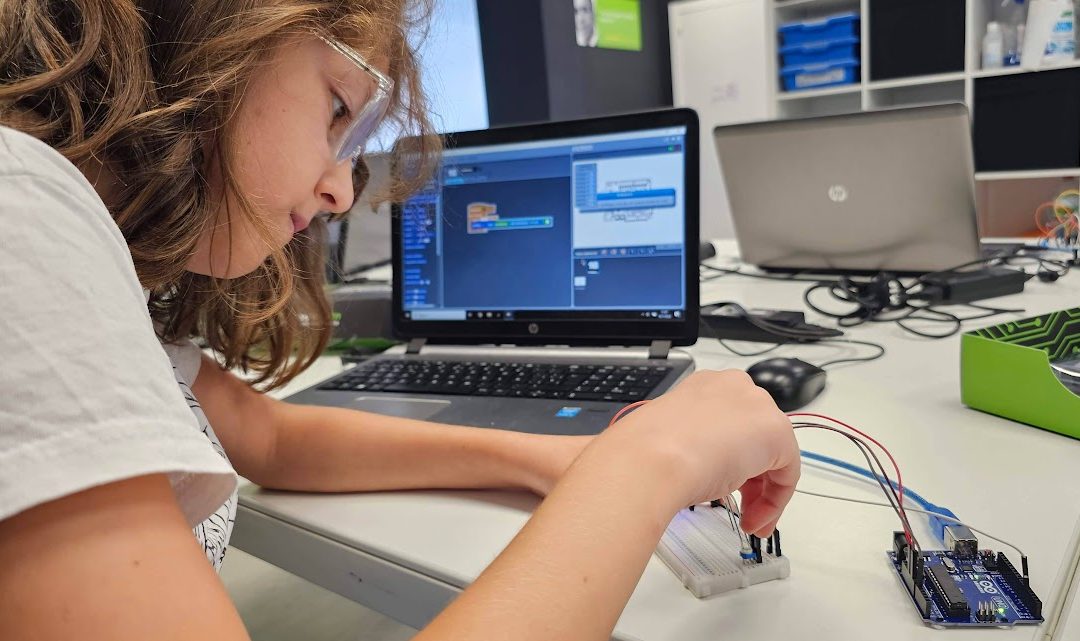Halloween is just around the corner, and we know these days can be spooky for various reasons, but one thing that never scares us at Codelearn is learning to code. When it comes to programming, it’s common for people without any experience to think it’s a highly complicated field, or that only certain types of people can understand it. However, like many other skills, these fears often arise from misconceptions we’ve come to believe over time. So, this week, we want to explore some of the most common myths about programming and try to debunk them, proving that coding isn’t as mysterious as it seems and that anyone can learn it.
Myth 1: “Programming is only for math geniuses”
When we think of computer programming, we often associate it with complex math, and many people believe that coding always requires advanced calculations. While it’s true that programming and math are related, most coding tasks don’t demand an in-depth knowledge of math; rather, they require a good ability to think logically and organize ideas. In fact, it’s often more important to know how to use the right tools and methods to solve smaller problems. Math is useful in certain more advanced fields, like data analysis or artificial intelligence, but it’s not a barrier to starting your programming journey.
Myth 2: “Programming is a very lonely activity”
Another widespread idea about programmers is that their work is very isolated, with little social interaction, but the reality is quite different. First, a good programmer needs to know how to communicate well with others to understand their needs and deliver the best solutions to their problems. Additionally, much of the work in programming projects is collaborative, with teams where everyone contributes their skills and ideas. Platforms like GitHub make sharing and developing projects with other programmers practically essential, and collaboration and teamwork are highly valued in the programming world. In many cases, great ideas come from working together with other professionals.
Myth 3: “It takes too much time to learn to program”
Time and dedication are essential for learning any new skill. However, when it comes to making progress, consistency is more important than the amount of time spent each day. For example, at Codelearn, we encourage our students to connect to the platform daily for a few minutes rather than working irregularly for long hours. Many people have learned to code by dedicating just small amounts of time each day, advancing step by step without having to quit everything to focus exclusively on learning to code. Coding is a skill that can fit into each person’s schedule and can be combined as a complement to other studies or jobs.
Myth 4: “You can only be a good programmer if you started young”
At Codelearn, we’ve always said that it’s easier to learn coding from a young age since children and adults have different learning capacities, and adults may have more mental barriers. But this doesn’t mean there’s an age limit for learning to code; in fact, it’s never too late to start. Many professionals in the field started coding as adults, and each day, more people are switching to programming from other careers. The key to learning to code is having a genuine interest, putting in the effort, and staying consistent. Technology evolves quickly, so the most important thing is adaptability, while age or experience are not determining factors in becoming a good programmer.
Myth 5: “Programming is only for highly analytical minds”
While programming does require some analytical and logical skills, creativity is also essential. This means people with diverse abilities can become excellent programmers since the ability to find innovative solutions and think outside the box is often highly valued. Depending on each person’s strengths and weaknesses, different skills may need to be worked on more. Moreover, programming encompasses many specialties—video game development, mobile app design, robotics, electronics, and more—and each area appeals to different types of people, requiring different skills and personality traits.
In short, learning to program is truly an activity anyone can do, and it’s crucial not to limit ourselves before we even start. Some of the myths around programming can intimidate people taking their first steps in this world, but the truth is that programming is just another skill that can be learned through practice and experience, starting from scratch and advancing without fear. At Codelearn, we firmly believe that anyone can learn to program if they have curiosity and a desire to discover that there’s nothing “scary” about this learning journey.

